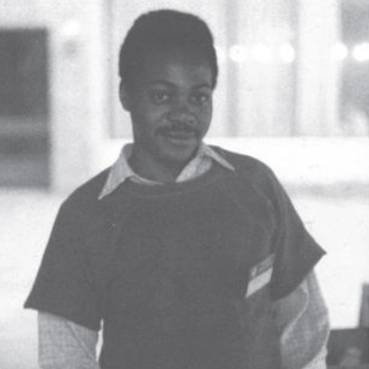
“Being Black and homosexual, one forms a double consciousness of being oppressed. By forming a consciousness of being Black, I gradually came to form a consciousness of what it is to be gay and oppressed too” -Lionel Cuffie, ’72
In 1969, Rutgers was home to a small, informal group of gay students – the Targum reported that approximately four dozen had attended a college mixer in Manhattan that spring, and in the fall, after Stonewall, some belonged to what the paper called the Gay Liberation Front, and they themselves defined as the Student Homophile League (SHL). The SHL issued a declaration of principles on November 21, and held its first formal meeting on December 2. It was the second such campus organization in the country, Columbia University students had already organized a homophile league before Stonewall, and they assisted Rutgers in creating its organization. One of the campus organizers, Lionel Cuffie, defined SHL as a “civil Libertarian and educational” organization, not a social group, that did not “advocate homosexuality,” but rather felt that “the homosexual has a moral right in our pluralistic society to be a homosexual, and that bigotry and emotional prejudice against homosexuals is unjust.” Cuffie, an African American activist, became the group’s first chairman and most visible presence in campus politics over the next two years.
The league drew about fifty men and women to its December 2 meeting and acquired office space in the College Avenue Student Center. While Cuffie had emphasized the link of the group to the struggle for civil rights, the SHL like many other gay and lesbian organizations on and off campuses nationwide put much of its initial energy into creating meeting spaces and activity that supported and nurtured those who came out as gay. It began publishing a newsletter that included poetry, informational articles, political analysis, and a calendar of events, and that spring, sponsored its first dance. The dances became the organization’s most popular activities, and for many years, aided in fund-raising as well. At the time, gay students at Rutgers only had a limited number of ways to meet other gay students-at Manny’s Den in downtown New Brunswick or by evening cruising along “the wall,” the stone fence at the foot of Old Queens along Hamilton Street, where gays were often targets of antigay violence. The dances provided new options. (Clemens & Yanni, 2015, p. 196).
Lionel Cuffie graduated in 1972 and went on to inspire young activists across the country, eventually studying at Harvard University. He was also well known in New York’s literary scene. Tragically, Cuffie passed away from AIDS-related complications in 1985. Cuffie and several other former Rutgers students, faculty, and staff lost in the epidemic were commemorated as part of the AIDS Memorial Quilt. To this day, an annual award is given to a graduating LGBTQA student activist in his name. While technically our 26th voice in this project, as the lead founding member of the Student Homophile League and a relentless advocate who transformed Rutgers, we felt his story needed to be included in this project.
Clemens, P., & Yanni, C. (2015). Rutgers since 1945: A History of the State University of New Jersey. Rutgers University Press.



